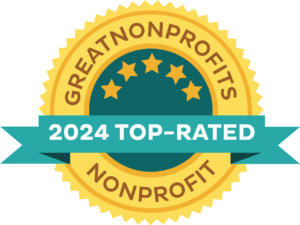How to Succeed With More Sober October
Even if your goal is moderation rather than abstinence, taking part in a month-long More Sober October challenge can help you improve your relationship with alcohol.
It feels like there’s a month dedicated to everything: Cherry Month, Car Care Month, Skyscraper Month—not to mention Dry July and Sober October. These months focused on abstinence are great opportunities to benefit from the support and energy of a group goal. But what if your aim is moderation and a healthier relationship with alcohol rather than quitting entirely? Can you still use these month-long challenges to reach your goals?
Enter More Sober October
Developed by Moderation Management (MM), More Sober October supports people looking to explore their drinking habits through mindful drinking and responsible alcohol choices. It’s a time to set achievable goals, reflect on your relationship with alcohol, and take advantage of MM’s supportive community.
Ahead of More Sober October, I spoke with Dr. Andrew Tatarsky about the benefits of a month-long reset and how to approach it for success. Dr. Tatarsky, creator of Integrative Harm Reduction Psychotherapy (IHRP), treats risky behavior by combining psychoanalysis, CBT, and mindfulness. His approach challenges the assumption that abstinence is the only valid goal for addressing addictive behavior.

Dr. Andrew Tatarsky, creator of Integrative Harm Reduction Psychotherapy
I never want people to feel like it’s pass or fail. This month can be an experiment in stepping toward your goal…”
– Dr. Tatarsky
The Value of Reflection and Experimentation
Dr. Tatarsky views month-long challenges like More Sober October as valuable experiments in behavior change. “People may be interested in attempting a 30-day period of complete abstinence, but they may be drawn to an attempt at moderation, however they define that.”
He suggests starting with reflection: “…asking yourself, What am I really up for? There’s always ambivalence. We might be scared, we might not know how to negotiate all sorts of situations without alcohol. There are many reasons to be ambivalent, but we can embrace that, at the same time feeling that on balance, you’re leaning towards making a particular change. Feeling like you’re up for it.”
A little gentleness goes a long way, he says. “I never want people to feel like it’s pass or fail. This month can be an experiment in stepping toward your goal, and in the process discovering what your ideal relationship to alcohol is, rather than buying into somebody else’s definition of it.”
Strategies for a Successful More Sober October
If this approach resonates, here are six strategies Dr. Tatarsky recommends to prepare for More Sober October:
- Create a detailed behavioral plan – Identify how you’ll get through the month without drinking, or drinking less alcohol, by finding new rituals or activities that fulfill what drinking once did.
- Perform a micro-analysis – Understand how drinking fits into your life. Identify times, places, feelings, and relationships associated with problematic drinking.
- Prepare for challenges – Use tools like journaling, self-reflection, and discussions in MM meetings to address those challenges in new ways.
- Practice mindfulness – Cultivate mindfulness to stay aware of urges and feelings, and apply your strategies when needed.
- Write a positive motivation checklist – Keep a list of your reasons for taking on the challenge.
- Seek support – Connect with others participating in More Sober October, and reach out to friends, family, or a therapist when needed.
Treat the Month as an Experiment
Above all, treat the month as an experiment, not a test. Be kind to yourself and use any learnings to fine-tune your relationship with alcohol long-term.
You can register for the low-cost More Sober October Kickstart 30-day program by visiting https://moderationmonth.org/register/team-kickstart-moderation-course/
___

Leave a Reply
Want to join the discussion?Feel free to contribute!